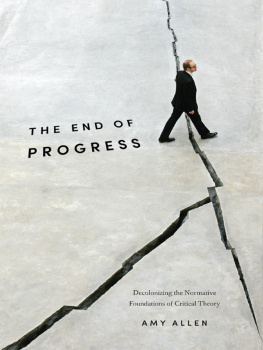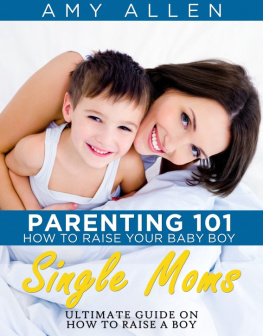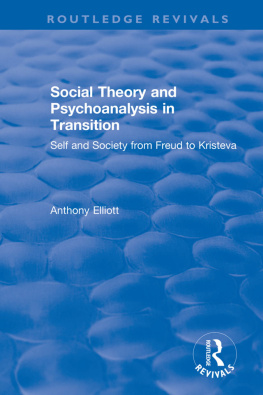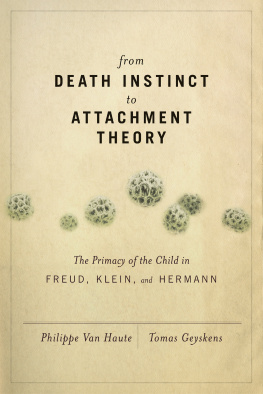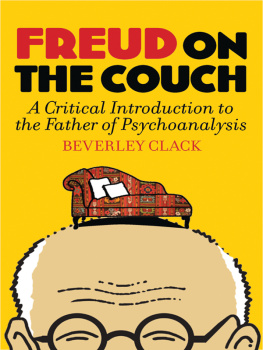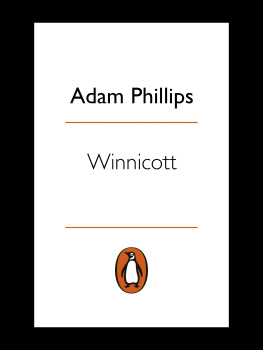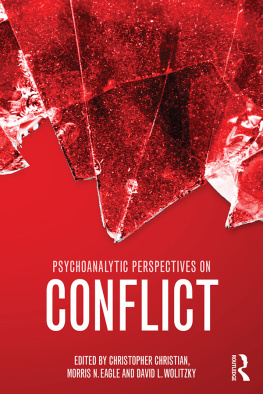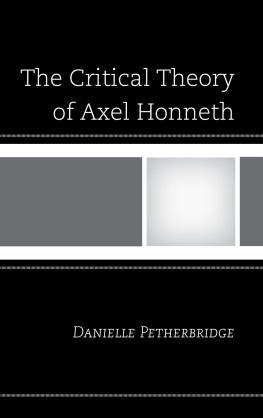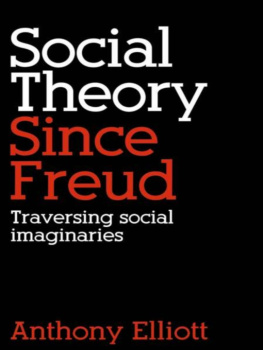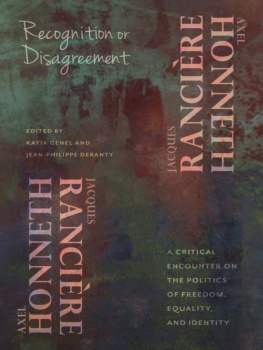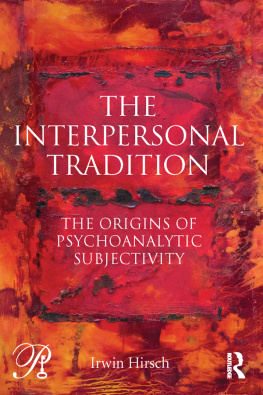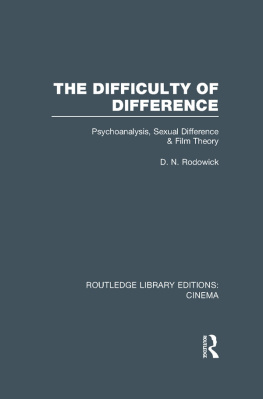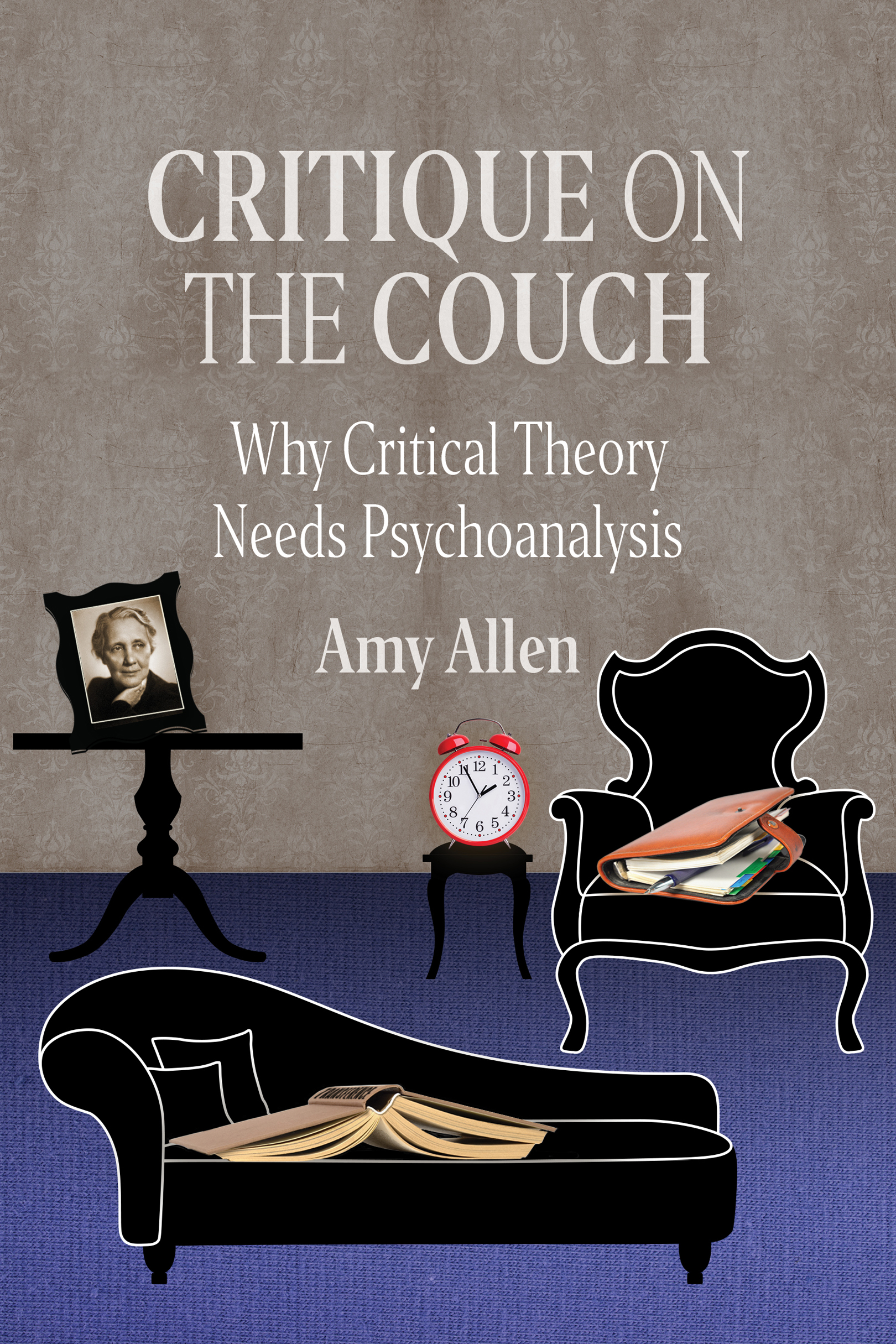Contents
Guide
Pagebreaks of the print version
CRITIQUE ON THE COUCH
New Directions in Critical Theory
New Directions in Critical Theory
Amy Allen, General Editor
New Directions in Critical Theory presents outstanding classic and contemporary texts in the tradition of critical social theory, broadly construed. The series aims to renew and advance the program of critical social theory, with a particular focus on theorizing contemporary struggles around gender, race, sexuality, class, and globalization and their complex interconnections.
For a complete list of titles, see .
CRITIQUE ON THE COUCH
Why Critical Theory Needs Psychoanalysis
Amy Allen

Columbia University Press
New York

Columbia University Press
Publishers Since 1893
New YorkChichester, West Sussex
cup.columbia.edu
Copyright 2021 Columbia University Press
All rights reserved
E-ISBN 978-0-231-55271-4
Library of Congress Cataloging-in-Publication Data
Names: Allen, Amy, author.
Title: Critique on the couch : why critical theory needs psychoanalysis / Amy Allen.
Description: New York : Columbia University Press, 2020. | Series: New directions in critical theory | Includes bibliographical references and index.
Identifiers: LCCN 2020020823 (print) | LCCN 2020020824 (ebook) | ISBN 9780231198608 (hardback) | ISBN 9780231198615 (trade paperback)
Subjects: LCSH: PsychoanalysisPolitical aspects. | Critical theory.
Classification: LCC BF175.4.S65 A55 2020 (print) | LCC BF175.4.S65 (ebook) | DDC 150.19/5dc23
LC record available at https://lccn.loc.gov/2020020823
LC ebook record available at https://lccn.loc.gov/2020020824
A Columbia University Press E-book.
CUP would be pleased to hear about your reading experience with this e-book at .
Cover design: Lisa Hamm
Cover image: Digital composite
Contents
I began the research that would eventually become this book during the 20092010 academic year, which I had the good fortune to spend as a Silberger Scholar at the Boston Psychoanalytic Society and Institute. Many thanks to the entire BPSI community for their warm welcome, and especially to Bonnie Smolen and Dawn Skorczewski for generous support and encouragement; Jack Beinashowitz, Martha Fisch, Cary Freidman, Richard Gomberg, Dan Mollod, Harry Penn, and Sharon Roberts for allowing me to attend their classes for analytic candidates; Joel Whitebook for insightful and challenging comments on my 2010 Silberger Lecture; and Crystal Feimster for her friendship and camaraderie.
Originally, I planned to write a very different book, one that would argue that the future of critical theory depended on a return to the insights of the early Frankfurt School, in particular the interrelated Freudian and Nietzschean critiques of the rational ego and of historical progress found in Adorno and Horkheimers Dialectic of Enlightenment. After several years of work, I realized that the scope and ambition of such a project might well defeat me, and that even if I were to succeed in finishing such a book, it would be much longer than anyone might be willing to publish, let alone read. So, I decided to split the project into two books, one focusing on questions of history and progress, and the second concentrating on the reception of psychoanalysis in critical theory. Thanks to the Humboldt Foundation for the research grant that funded my initial work on this project in 2010 and 2012 and to the Forschungskolleg Humanwissenschaften in Bad Homburg for hosting me during my research stays in Frankfurt. Above all, thanks to my editor at Columbia University Press, Wendy Lochner, for her ongoing faith in this project and its author.
This book began to take its current shape as a series of three lectures delivered to the School of Philosophy and Art History at the University of Essex in 2015 as one of their summer minicourses. Many thanks to Fabian Freyenhagen, Jrg Schaub, Timo Jtten, and all of the Essex philosophers for the kind invitation, the warm hospitality, and the generous yet rigorous discussion of my work in its nascent form.
In addition, I am grateful to audiences and organizers of a variety of conferences, lectures, and other venues where material for this book was presented over the last decade, including the following: the Colloquium on Philosophy and the Social Sciences in Prague, the Goethe University in Frankfurt, the Psychoanalysis Study Group at Dartmouth College, the Psychoanalysis and Critical Theory Workshop at the New School for Social Research, the Australasian Society for Continental Philosophy, the Princeton Political Theory Graduate Student Conference, the Villanova Philosophy Graduate Student Conference, the Department of Philosophy at Concordia University, the Society for Phenomenology and Existential Philosophy, the Oakley Center for the Humanities at Williams College, the Institute for Philosophy at the Universidad Autnoma Metropolitana in Mexico City, the Center for Contemporary Critical Thought at Columbia University, the Foley Institute for Public Affairs at Washington State University, the Critical Theory Roundtable, and the Centre Marc Bloch in Berlin.
Martin Saar and Kristina Lepold did me the tremendous honor of organizing a workshop discussing the penultimate version of the manuscript at the storied Institute for Social Research in Frankfurt in November 2019. Heartfelt thanks to them and to all of the workshop participants for the constructive and illuminating discussion, which helped me to refine and clarify the final draft.
In addition to those mentioned above, thank you to the following friends and colleagues for fruitful and inspiring discussions of the ideas contained herein: Robin Celikates, Benjamin Fong, Rainer Forst, Katia Genel, Federica Gregoratto, Bernard Harcourt, Bonnie Honig, Axel Honneth, Claudia Leeb, Robyn Marasco, Inara Luisa Marin, David McIvor, Johanna Meehan, Brian OConnor, Isaac Arial Reed, Eva von Redecker, Duarte Rolo, Irena Rosenthal, Jana Sawicki, Yannik Thiem, and Jamieson Webster.
I owe a special debt to those generous souls who read and gave me feedback on the entire manuscript (a true labor of love if there ever was one): Mara Pa Lara, Noelle McAfee, and Mari Ruti. To Mari, who has forgotten more about Lacan than I will ever know, I fear my debt is unpayable. Still, I must express my undying gratitude for her generous reading of my work, for hours and hours of mind-opening intellectual discussions, for inspiring me to rethink my approach to writing, and much, much more.
Thanks to the following Penn State graduate students for valuable research assistance and insightful discussions: Jerome Clarke, Benjamin Randolph, Wayne Wapeemukwa, and Nicole Yokum.
As ever, Im grateful to my family: Chris, Clark, Oliver, Isabelle, and Eloise.
Earlier versions (in some cases much earlier versions) of parts of the following chapters have appeared in print before: Are We Driven? Critical Theory and Psychoanalysis Reconsidered, Critical Horizons 16, no. 4 (November 2015): 31128 (parts of ). All of this material has been substantially revised and expanded for inclusion here.


